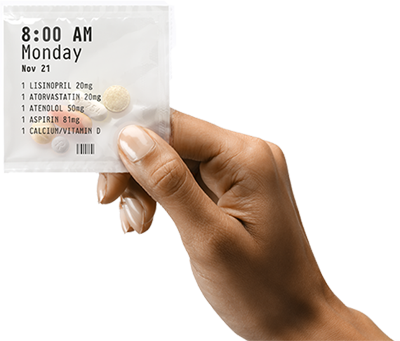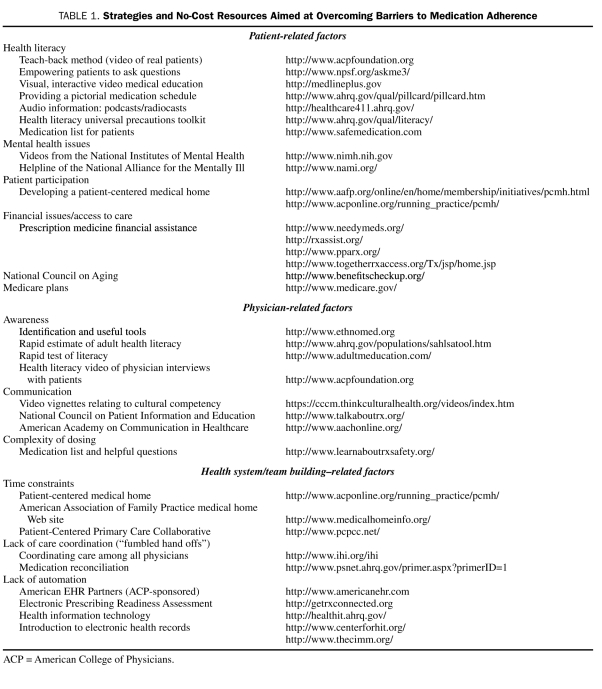- As many as 35 million Americans are prescribed more than 5 medications
- The rate of nonadherence surpasses 50% when the patient is taking ≥5 prescriptions per day.
- Improving adherence can improve outcomes, reduce costs, and increase patient satisfaction.
A small company called PillPack may be about to fundamentally change the way your patients keep track of – and adhere to – multiple prescriptions. According to a 2011 article in Mayo Clinic Proceedings, adherence rates vary with the complexity of the regimen. Patients who are asked to take a single dose, or set of pills, once a day showed 79% adherence to the regimen, while those prescribed 4 or more doses per day kept with the prescribed program just 50% of the time.

“Strong evidence shows that many patients with chronic illnesses have difficulty adhering to their recommended medication regimen,” concluded Marie T. Brown, MD, et al.
According to an excellent article by Sarah Hedgecock on Forbes.com, “A tiny New Hampshire startup is revolutionizing the way millions of patients take their daily medicines–and threatening the business model of titans like CVS and Walgreens in the process.”
Why a Revolution?
Why do we need a revolution in the ways that patients take their medicines? Because, according to Forbes, as many as 10% of the U.S. population – that’s 35 million people – have been prescribed more than 5 medications. And, according to numerous studies1,2 the rate of nonadherence increases with every additional medication prescribed.

First, the problem: From a medical perspective, your non-adhering patient is not receiving the dose, the frequency, or both, of the medication(s) you’ve prescribed. This is likely to alter outcomes, almost certainly for the worse. So, increased adherence means better outcomes for you and your patients.
Second, from the patient perspective, adhering to prescriptions increases the chances that a disease process or malady will be controlled or cured. Of course, cure = patient satisfaction. As for patients with chronic disease, any simple system that makes multiple medications easier for patients to manage could improve outcomes. The ease of administration, along with improved outcomes, would likely lead to improved patient satisfaction.
Third, it seems likely that the healthcare economy would improve if all patients adhered to treatment. First, patients would less frequently return for the same treatment if they executed it accurately the first time. Diseases would be more frequently cured or controlled. Also, more prescriptions would likely be filled, which keeps money flowing through the system, energizing pharmacies and pharmaceutical companies alike.
But Is It A Revolution?
PillPack is a simple company with a simple idea: Put multiple medications in plastic envelopes and deliver them to the patient to be taken one packet per day. Yep, that’s it. PillPack calls itself “… a full-service pharmacy that delivers a better, simpler experience.” This little pharmacy and its plastic envelopes could contribute significantly to patient adherence.
PillPack cofounder and Chief Executive is T.J. Parker. He is the 29-year-old son of a pharmacist who grew up working in his dad’s pharmacy, and went to the Massachusetts College of Pharmacy. According to the Forbes article, he said, “I didn’t want to work at a traditional retail pharmacy. I wasn’t interested.”
Instead he and Elliot Cohen decided to found PillPack. The company website indicates that it has raised $12.8 million. Forbes estimates the startup could hit some $15 million in revenue this year, with a 15% to 20% profit margin.
At their large offices/factory in Manchester, NH, prescription information is input into a robot that contains the 400 medications most frequently dispensed by the company. (Pharmacists fill the unusual prescriptions by hand.) Each drug is labeled by bar code and checked by both the machine and a pharmacist.
PillPack currently employs 66 people. Of these, 15 of whom are dedicated to helping patients transfer their prescriptions from conventional pharmacies to PillPack. The company is licensed in all of the United States except Oklahoma and Oregon, according to Pillpack.com.
PillPack’s strategy is to focus on large-volume repeat customers, and to stock far fewer medications than most pharmacies, reducing costs and prices. Clearly, the product itself is also designed to reduce costs. The plastic envelopes allow the company to ship multiple prescriptions at once to a single patient.
The company is also creating a smartphone app that will remind patients to take their pills. Tech-savvy customers seem to like to renew prescriptions via email rather by phone.
